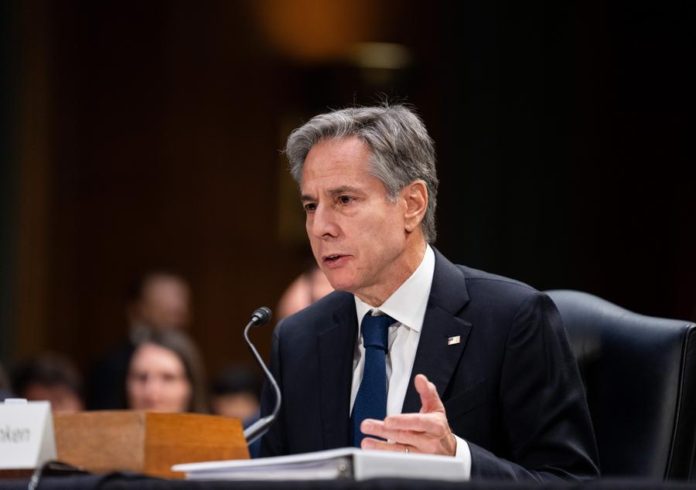
From the earliest massacres of the Indians to the enslavement of the Africans, from interventions in Latin America to military campaigns in the Middle East – extending even to Europe – American history is rife with exploitation and plunder.
To secure its place at the table, the United States has waged war, imposed sanctions and orchestrated upheaval across the world. As Blinken’s predecessor, Mike Pompeo, admitted, “We lied, we cheated, we stole.”
BEIJING (Xinhua) — The recent remarks by U.S. Secretary of State Antony Blinken, “If you’re not at the table in the international system, you’re going to be on the menu,” carries a comically menacing undertone. One might jestingly inquire, “Who talks like that? Hannibal Lecter?”
Blinken’s statement at the recently concluded Munich Security Conference also makes one wonder how U.S. Western allies would feel, because the U.S. top diplomat’s undiplomatic words represent the factors these allies fear could bring about “lose-lose dynamics,” including a dangerous tendency to engage in zero-sum thinking and prioritize relative payoffs.
A closer look at American history may reveal that Blinken’s rhetoric is not surprising. His statements reveal the fundamental logic of U.S. politics and diplomacy, namely an unshakeable devotion to the “law of the jungle,” in which many American leaders enthusiastically embrace aggression over reason, peace and cooperation.
From the earliest massacres of the Indians to the enslavement of the Africans, from interventions in Latin America to military campaigns in the Middle East – extending even to Europe – American history is rife with exploitation and plunder.
To secure its place at the table, the United States has waged war, imposed sanctions and orchestrated upheaval across the world. As Blinken’s predecessor, Mike Pompeo, admitted, “We lied, we cheated, we stole.”
U.S. policymakers believe the international system operates as a zero-sum game in which extending American interests frequently involves trampling on or sacrificing the interests of others.
In recent years, a plethora of domestic challenges, combined with the shifting global power dynamics and the collective ascent of developing nations, have exacerbated the U.S. anxieties about its hegemonic status.
In response, the United States has resorted to military and financial hegemony, constantly shifting crises onto others while reaping the benefits, harming not only developing countries but also its allies.
Washington has frequently withdrawn from international agreements; abused tariffs, sanctions, and extraterritorial jurisdiction; and used every means at its disposal to suppress the development of other countries.
Even America’s European allies aren’t safe. Europe frequently finds itself on the “menu,” serving as a target for American capital and politics. This current U.S. administration, for instance, has been enticing companies to shift their production bases from Europe to the United States through subsidies.
Blinken also mentioned that the point of persuading other countries to side with the United States is to “offer a good choice.” However, if the United States continues its rampant looting and bullying, it will find itself increasingly alone.
The choice for Uncle Sam is stark: feast alone at the table or share in a banquet of diplomacy and peace.
